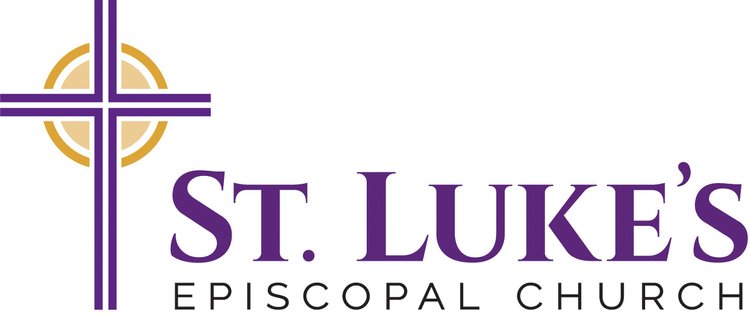Father Nick, "The Episcopal Church Welcomes You!!"
Dear St. Luke’s,
The Episcopal Church Welcomes You!!
At least that is what our signs say, and I can honestly say that we mean it! The thing is, even though we mean it, welcoming people to Church can sometimes be harder than expected, especially in an increasingly irreligious world. In my opinion, we often overthink it. To demonstrate a point, I am going to have to show my hand a little bit, and I doubt that you will be surprised. I am in favor of same-sex marriage, and I actively support the involvement of gay people in the life of the Church. With that being said, I have served in Churches that were less than affirming or preferred the topic just not be brought up, and I have noticed an interesting trend. The Churches that were the least affirming of gay rights had the most gay people in the pews on Sunday, and the Churches that were the most affirming had the least.
I know this is not a universal trend, and there are many other factors at play, but for me, it has been mind-boggling and beautiful to see. It was the Churches whose members populated my office to complain about gay Bishops, and welcome openly gay and transgender people on Sunday morning. They did more than just pass the peace with them, they invited them to breakfast after the service, and welcomed them by name when they came back! All of this isn’t just to say that we should welcome gay people from our community (which we should), but that we should take a lesson from those conservative Southern Churches about how to welcome anyone in, especially those who may differ from the status quo.
In our Gospel last week, Jesus told us that others will know that we are his disciples by our love, and in the case of those more conservative Churches they were great at loving even if they held prejudice against those whom they were showing love. In an ideal world, they would have shown love without the prejudice, but starting with love is a great way to work prejudice out of our systems. Like them, we are also called to welcome in and love those whom we find sinful, perhaps even those with prejudice. Loving sinners is one of the hallmarks of Jesus’s ministry. He sought out to eat and drink with the tax collectors and prostitutes, not because he thought they were getting a bad rap, but because they were the ones in need of love. Just as those who are sick need a doctor, the sinners of this world need Jesus and the Church.
The Church can be a refuge for the marginalized and the sinners of this world, and we can strive to be the place where the cycle of hurt people hurting people can come to an end. One of the things this requires is for people to feel safe within our community. Safe to be themselves, to voice their opinions, and safe to be contradicted if necessary. Unfortunately, this sometimes means that the Church cannot accept everyone. Not often, but once in a blue moon, a line gets crossed, and it can become clear that someone wishes to use our sanctuary as a place to hurt others or to fulfill a less than charitable agenda. If you’re curious, we are not in the midst of some giant conflict, but it is good to remind everyone that in addition to loving, we must be good stewards of the boundaries that keep our community safe, and this means speaking up when those boundaries are crossed.
I honestly believe that both sides of this coin are much easier than most people think. We must always start with love. It doesn’t matter what flags we choose to fly, or signs we put up, if we will not go out of our way to know and love others as they are, and allow ourselves to be known and loved, then we are failing the commandant that Christ gave us, which is to love one another. That love just isn’t for everyone else, it is for you too. When others fail to live up to that commandment, we have to speak up, and we should strive to do so compassionately.
Amid the tension in the world, I pray that you guard your heart against the forces of wickedness that keep us from respecting the dignity of every human being. Don’t forget that having policies about inclusion are good, but they should always be accompanied by taking the time to be with someone who needs this place to feel like home.
Blessings,
Nick
